| Columns Retired Columns & Blogs |
..first time. It still astonishes me to this day that two kids, not much older than myself at the time could be so musically mature and talented. I've been a big fan ever since.
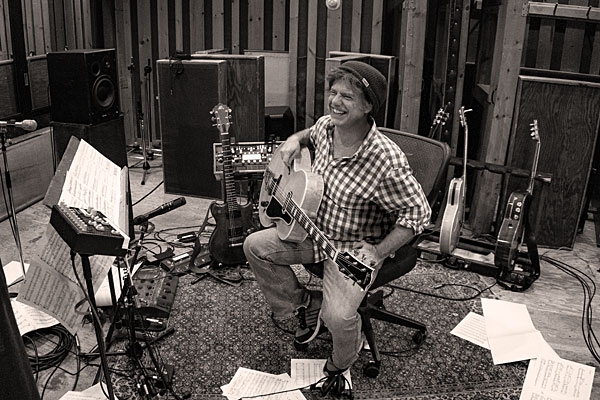
Metheny is one of the best-selling jazz artists ever. He has three gold albums, several Downbeat awards (including in 2020 as best guitarist and for the best jazz album, for From This Place), and 20 Grammy Awards: He's the only person ever to win Grammys in 10 categories. He's also a National Endowment for the Arts Jazz Master.
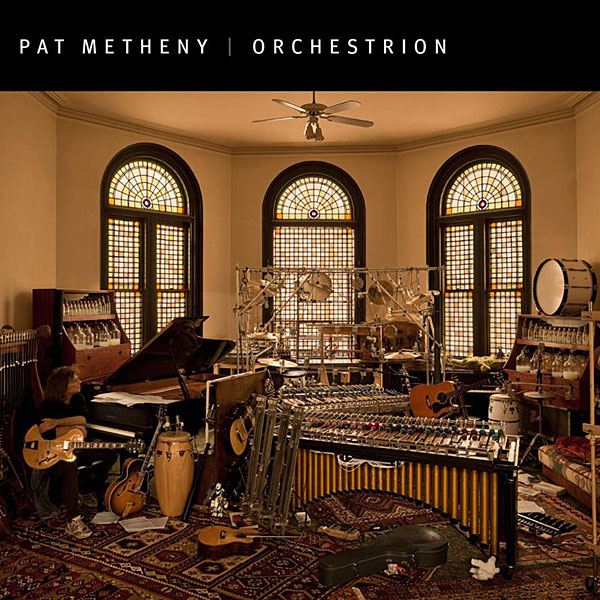
Metheny has recorded his compositions for his Pat Metheny Group, in duets with Jim Hall and Charlie Haden, for solo guitar and robot orchestra (Orchestrion), soundtracks, swinging trios, noise-fests (Zero Tolerance for Silence), and many side projects. His most recent album, Road to the Sun, is his 50th.
Apart from his ambitious work and touring schedule, a few things make Metheny distinctive: his oft-copied guitar sound and style; beautiful, brilliant melodies that have withstood time; soulful sounds that touch the heart but are never mawkish; endless curiosity about the world around him and ceaseless searching for new means of expression.
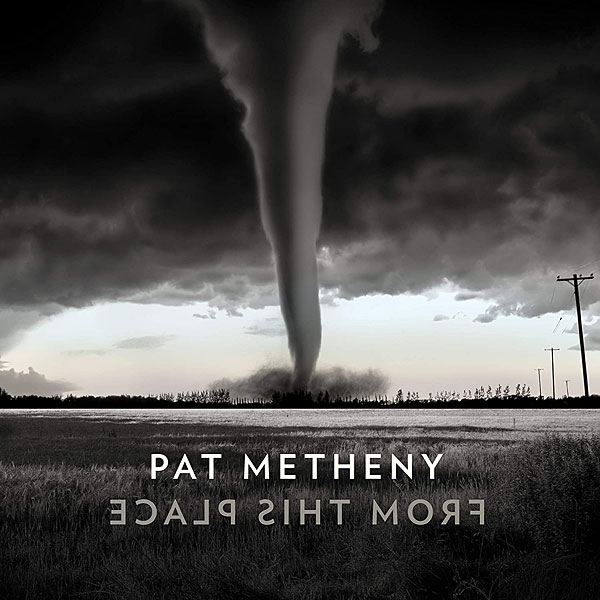
From This Place, on Nonesuch, includes 10 Metheny compositions and features Antonio Sánchez, his longtime drummer; Malaysian/Australian bassist Linda May Han Oh; British pianist Gwilym Simcock; and the Hollywood Studio Symphony conducted by Joel McNeely, as well as Meshell Ndegeocello (vocals), Grégoire Maret (harmonica), and Luis Conte (percussion). On the album, Metheny plays his 1940 Gibson ES-250, Slaman Traveling Sister 150/250, and Ibanez PM2 guitars. From This Place was recorded by engineers Luke Klingensmith, Jay Marcovitz, Phil Levine, and Rich Breen and mastered by Ted Jensen at Sterling Sound. It's available on CD, vinyl, and high-resolution 24/96 download. The vinyl was pressed at Record Industry in the Netherlands.
Road to the Sun (BMG/Modern Recordings), released earlier this year, features Metheny compositions performed by the Los Angeles Guitar Quartet. The album closes with a performance of Arvo Pärt's "Für Alina," performed by Metheny on his Linda Manzer 42-string Pikasso guitar. Pete Karam recorded, mixed, and mastered Road to the Sun; it, too, is available on CD, vinyl, and 24/96 download.
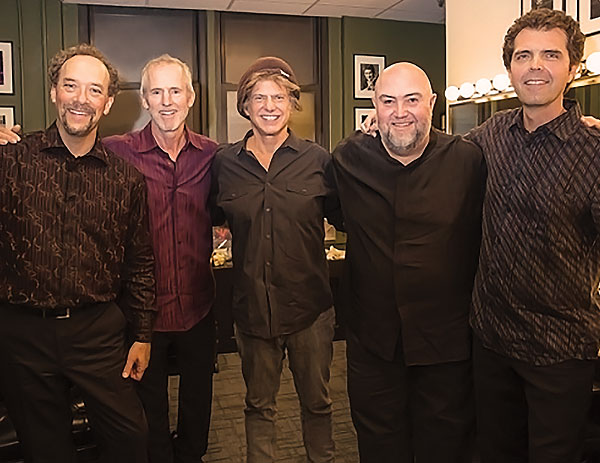
Drummer Antonio Sánchez says about his longtime musical partner: "Pat's brain works in a way that allows him to be hyperfocused on the task at hand for very long periods of time. When everybody is looking exhausted, Pat looks fresh and jovial. I remember when we were rehearsing for the Way Up tour in 2005. This was the most challenging piece of music any of us had ever played, and we were a little overwhelmed. I have this image of Pat [playing] these ridiculously intricate guitar [parts] and simultaneously making mental notes of what [everyone] else was doing. I saw this every time, no matter what tour, band, or project we were doing. Almost superhuman in a weird way."
Ken Micallef: What does the album title, From This Place, mean?
Pat Metheny: I didn't get the album title until the very end, when I was in full freak-out mode. I'd asked Meshell Ndegeocello to sing the tune and write lyrics. Her partner, Alison Riley, wrote the words, which are great. Then one day I realized that's the title of the album! It's gotten more resonant since the record came out. We are in a weird spot right now. We, being the world, but definitely our country at the top of the list. The words that Meshell sings go right to that. It's also very particular to what the pandemic has brought to the table, the idea of transcendence through hope. Let's try to get through this and make things better.
Micallef: So, the cover art of the tornado in the dark skies speaks for itself.
Metheny: Tornadoes are very personal for me. My very first memory when I was 3 was sitting on my dad's shoulders. The town next to ours was completely destroyed by a tornado. A good chunk of my springtime life as a child was spent cowering in the basement because of tornadoes. So, tornadoes have a really strong place in my life, and that somehow felt particularly resonant to the song "From This Place" in particular.
Micallef: "America Undefined," also on From This Place, is one of your longest compositions. At one point there are railroad-crossing sounds, which turn into a roaring jet engine. It's like it's blowing past your face. What were you addressing in that piece?
Metheny: This is connected to larger issues of form and structure and how an improvising musician can exist within the realities of what it is to be alive during this time. And to technology, the possibilities that exist within technology for somebody who's looking to express things, creativity, in my case. I've referenced extremes before, like where there's no written material, like Zero Tolerance for Silence, to the current record, Road to the Sun; that's 100%, every little thing is written out. If we're going to make an X/Y grid, there's also the question of, how do you do it/Is it a documentary-type approach, meaning you go in, turn on the mikes, you play it once, and that's it? Or do you spend nine months on the snare drum sound? All those things are interesting to me.
I'm talking about the train stuff you're referencing. That took weeks to get, a really a massive thing. In addition to tornadoes, the house that I lived in for the first four years of my life was literally 30 feet from the main line of the Missouri Pacific Railroad. We heard that sound all the time. The trains would be like two miles long, and then there'd be a 10-minute break and then there'd be another train.
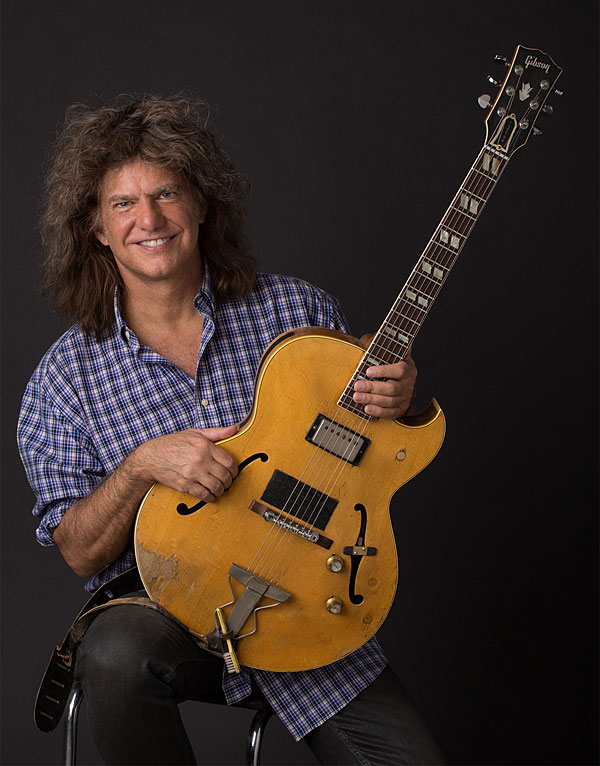
Micallef: So that's not a jet engine.
Metheny: It's the sound of a diesel train with the Doppler effect as it goes by. Back in those days, trains would go through little towns really fast. Lee's Summit was a tiny town. We didn't even have a train stop until the early '60s. The train zipping from St. Louis to Kansas City would blast by our house. We were on a little street that bordered the railroad track. My dad grew up on that same block, and my grandfather built those houses.
Micallef: You'd hear that sound often?
Metheny: Yeah. I wanted to capture that. Sound has always been a primary thing for me. Some of that applies to every electric guitar player: sound, knobs, wires, cords, speakers, that's kind of our instrument, in a way. None of that is ever foreign to me; it feels like a part of the act, and included in that now is the studio itself, which, after the ECM era—which was truly a documentary era where we had two days to record and a day to mix—once I got to Geffen, we could spend time in the studio. I really embrace the idea of using the studio itself as an instrument. And that relates to the guitar, all the nerdy things that guitar guys do, I've been doing right from the get-go. It all figures into that.
Micallef: The focus on trains explains some of your stage sets through the years, too.
Metheny: The train motif has been a big one. The song "America Undefined" was inspired by James Baldwin's essay "The Discovery of What It Means to Be an American." We don't know yet what it is, this country. It's a great idea. But man, the last four years have shown we are still so far from any kind of ideal of anything. The song is an expression of that.

..first time. It still astonishes me to this day that two kids, not much older than myself at the time could be so musically mature and talented. I've been a big fan ever since.

vintage Pat Metheny at the same time. I haven't been blown away like that from a musical work in a long time - if ever.
I have been a fan since 1979 hearing "new chautauqua" being played in a record store (Record Theater, Buffalo, NY). Bought it on the spot.
Also blown away at a concert near Chicago when female vocalists voiced the instrumental of "Song for Bilbao" what an amazing concert!
So many great albums, so many great songs. An incredible lifetime of achievement!
Thanks for the may years of music Pat, peace and God bless and please keep them coming!
Tony

Great interview- KM.
Big fan of PM here.

In the article I failed to mention the importance of engineer Pete Karam to not only the sound of "Road to the Sun," but also, "From This Place."
From Pat: "Pete Karam did 95% of the recording of From This Place, and also basically every recording of any kind I have done for the past 25 years or so now. There are tons of things I refer to about From This Place that he was intimately involved with. He, along with Steve Rodby, have been the most important people for me over these past decades to get the results that shows up on the recordings. Also, Pete [is an] avid Stereophile reader."

John Atkinson
Technical Editor, Stereophile

Pat & Lyle's Wichita is a beauty unlike any other out there. How did they achieve it? I guess it's a mystery. I don't know how many times I've heard it from start to finish. Hundreds. And I keep returning to it. Hemingway said, reading old favourite books is like visiting your old friends. Maybe my old friend is As Falls Wichita album. I remember reading somewhere they had some ideas for a sequel. Shame never happened.
Also: for Pat Metheny fans, my highest recommendation is Jack DeJohnette's Parallel Realities, both studio and live albums. It's a great quartet with Herbie Hancock, Dave Holland, Jack and Pat playing high quality material. And love Lyle: his self titled 1986 album, and Street Dreams 1988, and that solo piano album are all terrific.

Pat's side projects that sound excellent could fill a book. He's also great on Michael Brecker's Impulse! debut, Joshua Redman's Wish, Gary Burton's Passengers, Rejoicing with Charlie Haden and Billy Higgins, Beyond the Missouri Sky (Short Stories) with Charlie Haden, I Can See Your House from Here with John Scofield.

it's been stalking me for decades
hr

I was sold after seeing his group perform on the Old Grey Whistle Test on BBC TV in the early 80s. So not: jazz, rock, blues or classical; simply Metheny. First Circle was one of the very first CDs I purchased in 1985.